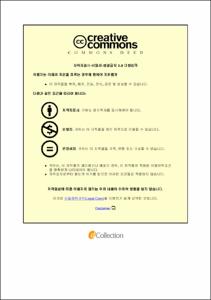면역계에 미치는 교통소음 영향과 유아기 천식에 미치는 주산기 인자에 관한 연구
- Abstract
- Environmental factors affect human health, and in particular, the prevalence of asthma worldwide with a steadily increasing trend. Road traffic noise, passive smoking, and air pollution are among the most important environmental factors.
In the first part, research was performed to investigate the effect of road traffic noise and the noise sensitivity on the immune system. A survey was conducted through questionnaire (ISO/TS 15666) in 172 female subjects in Korea, including 128 from Ulsan and 44 from Seoul. The average noise level was calculated, and blood samples were collected for measurements of cortisol levels, natural killer (NK)/natural killer T (NKT) cell populations, and NK cell activity [through measurements of interleukin-12 (IL-12) and interferon-gamma (INF-γ) concentrations]. Multivariate linear regression analysis of the measured biomarkers according to the road traffic noise level and self-reported noise sensitivity were conducted adjusting for the effects of age, alcohol status, smoking status, regular exercise, and residence period. IL-12 levels increased, whereas the NKT cell population decreased with increasing noise levels. The results further suggested that cortisol levels are more influenced by the subject’s sensitivity to noise than to the level of chronic road traffic noise. Therefore, noise appears to have the largest effect on IL-12 levels as well as the population and activity of NKT cells.
In the second part, the effects of perinatal factors and environmental factors on asthma were studied. The study involved 3,770 children (mean age 9.1 years [range 5.68–12.16 years] years; male 51.9%) who were enrolled in the "Elementary School Student Cohort (2009–2014) for Identifying Environmental Factors of Allergic Disease" in the Atopy Environmental Health Center, Ulsan University Hospital (Ulsan, Korea). Subjects were divided into an asthma group (n=514) and a non-asthma group (n=3256) and examined using questionnaires and laboratory tests. To identify independent/combined risk factors, multivariate and subgroup analyses were performed. Multivariate analyses revealed that early life (< first week) oxygen therapy (adjusted odds ratio [aOR] 1.864 [95% confidence interval [CI] 1.156–3.004) and breastfeeding (aOR 0.763 [95% CI 0.606–0.960]) were two significant perinatal risk factors influencing the development of asthma. Environmental tobacco smoke (ETS) (aOR 1.634 [95% CI 1.298–2.058]) and parental allergic disease (aOR 1.882 [95% CI 1.521–2.328]) were also identified as potent risk factors. Using subgroup analyses, there were combined effects on asthma development between perinatal risk factors (early life oxygen therapy and breastfeeding) and other risk factors (distance to major roadway [traffic-related air pollution], ETS, parental allergic disease, and atopy]). Early life oxygen therapy and breastfeeding were identified as two important perinatal risk factors influencing the development of asthma. Through these studies, it was confirmed that road traffic noise and secondhand smoke are not only a strong independent risk factor for human immune response but also a risk factor for immune response when combined with other influencing factors.
- Issued Date
- 2018
- Awarded Date
- 2018-08
- Type
- Dissertation
- Alternative Author(s)
- Kim Ahra
- Affiliation
- 울산대학교
- Department
- 일반대학원 생명과학과
- Degree
- Doctor
- Publisher
- 울산대학교 일반대학원 생명과학과
- Language
- eng
- Rights
- 울산대학교 논문은 저작권에 의해 보호받습니다.
- Appears in Collections:
- Life Science > 2. Theses (Ph.D)
- 파일 목록
-
-
Download
 200000102900.pdf
기타 데이터 / 1.25 MB / Adobe PDF
200000102900.pdf
기타 데이터 / 1.25 MB / Adobe PDF
-
Items in Repository are protected by copyright, with all rights reserved, unless otherwise indicated.